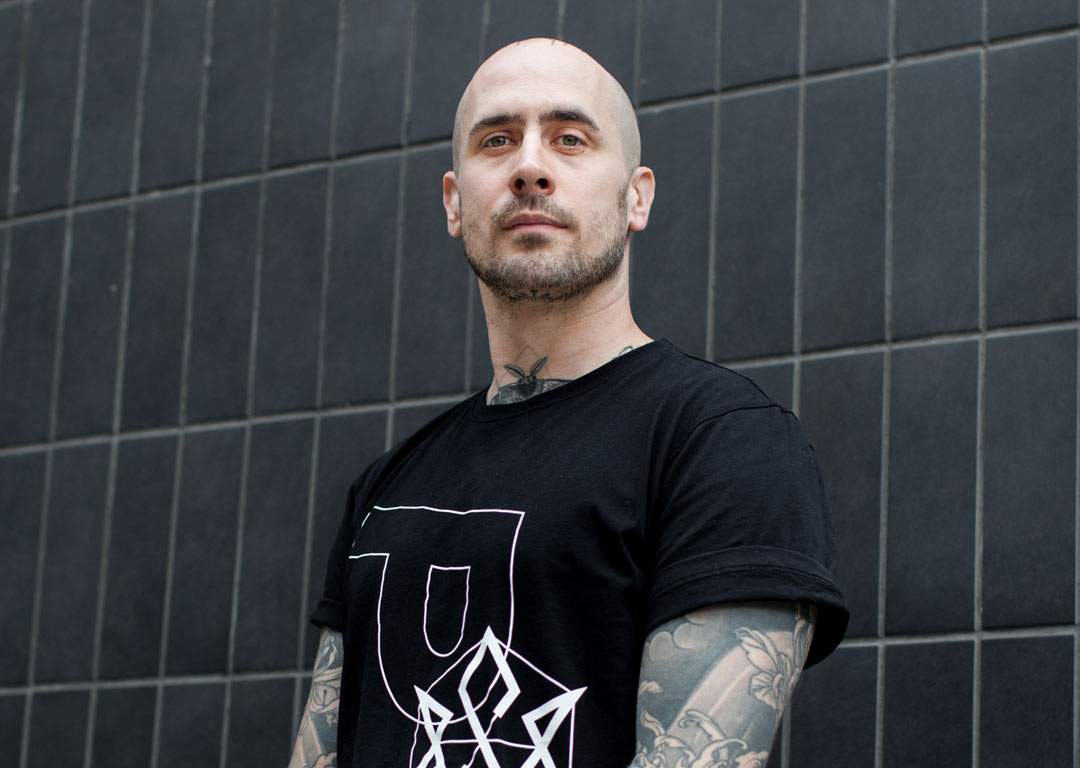Maxime Plescia-Büchi
The World Wide Web tells us, that you studied psychology and graphic design, before you started as a tattoo artist. How did this happen? When did you know you wanted to become a tattoo artist?
It was a sinuous path but I made sure everything led to the other or at least at some stage informed my practice. I always had a very broad range of interests and I couldn’t really settle on one, I tried things I wanted to try and found out I wasn’t that good at them! And then I thought why not try this other thing I also have an interest for, maybe I will be good at that. But also art wasn’t really a professional option in my social circle as a kid. So it was kind of the last step I took because I realized all my life it had been what I wanted to do and still wanted to do at the age of 21 when I went to art school. But even there it was the same story. I had to try many things. I only really knew I wanted to be a tattoo artist the day Filip Leu asked me if I wanted to be his apprentice. I had never really considered tattooing an option. But immediately then I knew that was it.
Which was the main reason force behind the choice being a tattoo artist?
It is the purest artistic/cultural practice today. It is what punk was in the 80’s or maybe Blues in the early 20th century. But maybe with even more history and depth because it is not a style, it is a practice found in any given civilization, since the dawn of humanity. I can go on and on about it but today, tattooing is still a completely unchartered, spontaneously organized, yet an extremely coherent practice. To use a very trendy term, it is a completely “organic” culture and maybe the only remaining truly “oral” tradition in the Occident, which gives it an incredible power over people’s imagination and life. There is something mystical about tattooing that all arts aspire to, but have gotten lost on their way to gentrification. More than anywhere else tattooing is the place where you can find the most incredible variety of individuals, yet all practicing this activity in a very coordinated manner.
How were you practicing in the beginning?
Once your mentor deems you ready, you practice on people. Friends, or just people who want a freebie.
What kinds of things are inspiring you?
Everything. Anything. But I tend to draw a lot of inspiration from a certain classic European culture. From architecture to illustration and art, to sciences.
What are your favorite subjects to tattoo?
I don’t have any. My favorite will be the one I feel is the best for a given person. The same motif can be perfect for someone and completely off for someone else.
What’s your actual tattooing process like? Are you drawing straight onto the body?
I usually work from visual references. I have an extensive book collection and I ask people to bring images that inspire them. Then I use images like a Rorschach test. I make people talk about what they see and what they like and while they do that I start looking for other images that might embody better what they are describing. Then we choose one or several references. I also do rough sketches on their body to decide on layout, visibility, scale parameters and then I start designing a motif.
What are the main differences between working in UK and Switzerland?
In the UK there is more of a popular tradition of tattooing. People have more preconceptions and expectations but also more knowledge of tattoo culture. This makes a lot of conversations easier, but can also result in people making more conventional choices. For example, tattooing being historically a working class tradition in the UK, people usually go for smaller pieces, and generally, expect tattoos to be cheap. The social/class stigma, also creates a less diverse clientele overall.
Whereas it is the opposite in Switzerland. The advantage is that people are much more open minded and do not see any issue in tattoo references from fine arts or anything else. Also once they go for it, they are ready to go big if necessary and commit to it, even if it means saving up for it. But on the other hand, people sometimes consider tattooing as a simple service, and see tattooists as someone who just executes their idea with no understanding that there is a lot more to it. I compare tattooing to architecture; you can draw a beautiful house if you are a good illustrator, but if you go to an architect and demand to execute the drawing exactly as you did it without adjusting anything, the chances that you will actually hate living in this house are very high.
Fluorescent colors are again trendy. What do you think about UV black light tattoo?
To be honest I don’t even know what that is. It’s like asking a competition cyclist what they think of steam punk style Penny-farthing bicycles. Completely irrelevant, whatever it is. But if it makes people happy, I’m all for it.
It was a sinuous path but I made sure everything led to the other or at least at some stage informed my practice. I always had a very broad range of interests and I couldn’t really settle on one, I tried things I wanted to try and found out I wasn’t that good at them! And then I thought why not try this other thing I also have an interest for, maybe I will be good at that. But also art wasn’t really a professional option in my social circle as a kid. So it was kind of the last step I took because I realized all my life it had been what I wanted to do and still wanted to do at the age of 21 when I went to art school. But even there it was the same story. I had to try many things. I only really knew I wanted to be a tattoo artist the day Filip Leu asked me if I wanted to be his apprentice. I had never really considered tattooing an option. But immediately then I knew that was it.
Which was the main reason force behind the choice being a tattoo artist?
It is the purest artistic/cultural practice today. It is what punk was in the 80’s or maybe Blues in the early 20th century. But maybe with even more history and depth because it is not a style, it is a practice found in any given civilization, since the dawn of humanity. I can go on and on about it but today, tattooing is still a completely unchartered, spontaneously organized, yet an extremely coherent practice. To use a very trendy term, it is a completely “organic” culture and maybe the only remaining truly “oral” tradition in the Occident, which gives it an incredible power over people’s imagination and life. There is something mystical about tattooing that all arts aspire to, but have gotten lost on their way to gentrification. More than anywhere else tattooing is the place where you can find the most incredible variety of individuals, yet all practicing this activity in a very coordinated manner.
How were you practicing in the beginning?
Once your mentor deems you ready, you practice on people. Friends, or just people who want a freebie.
What kinds of things are inspiring you?
Everything. Anything. But I tend to draw a lot of inspiration from a certain classic European culture. From architecture to illustration and art, to sciences.
What are your favorite subjects to tattoo?
I don’t have any. My favorite will be the one I feel is the best for a given person. The same motif can be perfect for someone and completely off for someone else.
What’s your actual tattooing process like? Are you drawing straight onto the body?
I usually work from visual references. I have an extensive book collection and I ask people to bring images that inspire them. Then I use images like a Rorschach test. I make people talk about what they see and what they like and while they do that I start looking for other images that might embody better what they are describing. Then we choose one or several references. I also do rough sketches on their body to decide on layout, visibility, scale parameters and then I start designing a motif.
What are the main differences between working in UK and Switzerland?
In the UK there is more of a popular tradition of tattooing. People have more preconceptions and expectations but also more knowledge of tattoo culture. This makes a lot of conversations easier, but can also result in people making more conventional choices. For example, tattooing being historically a working class tradition in the UK, people usually go for smaller pieces, and generally, expect tattoos to be cheap. The social/class stigma, also creates a less diverse clientele overall.
Whereas it is the opposite in Switzerland. The advantage is that people are much more open minded and do not see any issue in tattoo references from fine arts or anything else. Also once they go for it, they are ready to go big if necessary and commit to it, even if it means saving up for it. But on the other hand, people sometimes consider tattooing as a simple service, and see tattooists as someone who just executes their idea with no understanding that there is a lot more to it. I compare tattooing to architecture; you can draw a beautiful house if you are a good illustrator, but if you go to an architect and demand to execute the drawing exactly as you did it without adjusting anything, the chances that you will actually hate living in this house are very high.
Fluorescent colors are again trendy. What do you think about UV black light tattoo?
To be honest I don’t even know what that is. It’s like asking a competition cyclist what they think of steam punk style Penny-farthing bicycles. Completely irrelevant, whatever it is. But if it makes people happy, I’m all for it.

